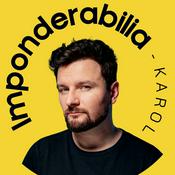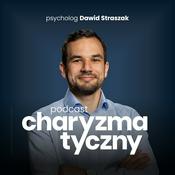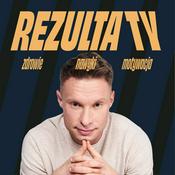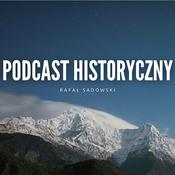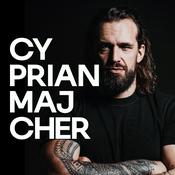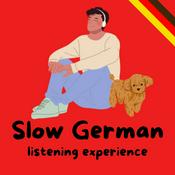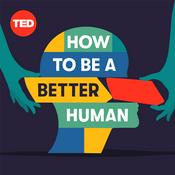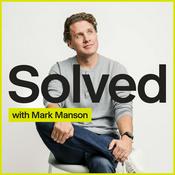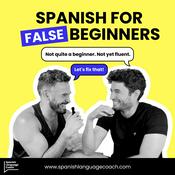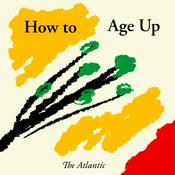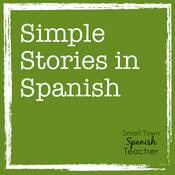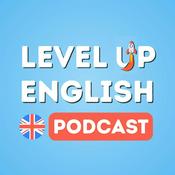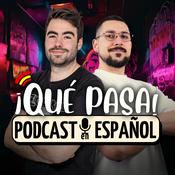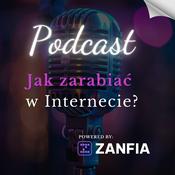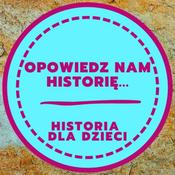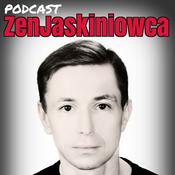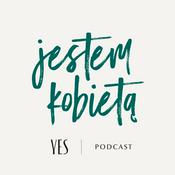119 odcinków

119. This (audio only) podcast is dead - long live the podcast? With Dan Quintana
29.09.2025 | 1 godz. 14 min.
This is a special episode: this podcast will change after this episode, from remote audio-only interviews to exclusively in-person video interviews. Dan Quintana, professor at the University of Oslo and host of the Everything Hertz podcast, joins me to discuss why and how I'm making this change, podcasting and science communication more broadly, time management as an academic and podcaster, and much more.BJKS Podcast is a podcast about neuroscience, psychology, and anything vaguely related, hosted by Benjamin James Kuper-Smith.Support the show: https://geni.us/bjks-patreonTimestamps0:00:00: An obnoxious episode: podcasters talking about podcasting0:02:22: Why Dan and I started our podcasts0:07:15: Video vs audio podcasts, YouTube as a podcast platform, and social media0:13:08: In-person vs. online/remote recordings0:18:40: My plans for recording in-person video interviews0:28:55: To start a remote podcast, you only need a laptop now0:30:58: Managing a podcast while being a full-time scientist0:39:14: Inviting guests to do interviews0:43:20: Is podcasting a waste of time?0:48:22: Science communication0:49:56: Should I change my podcast's name and logo?0:55:55: Final recommendations for the podcast from Dan? And for people who want to start a podcast1:04:02: A book or paper more people should read1:09:50: Something Dan wishes he'd learnt sooner1:12:11: Advice for postdocsPodcast linksWebsite: https://geni.us/bjks-podBlueSky: https://geni.us/pod-bskyDan's linksWebsite: https://geni.us/quintana-webGoogle Scholar: https://geni.us/quintana-scholarBlueSky: https://geni.us/quintana-bskyBen's linksWebsite: https://geni.us/bjks-webGoogle Scholar: https://geni.us/bjks-scholarBlueSky: https://geni.us/bjks-bskyOther links & referencesSamson 2QU microphone: https://samsontech.com/products/microphones/usb-microphones/q2u/Latour & Woolgar (1979). Laboratory life: The construction of scientific facts.Morris (1979). The Rise of Theodore Roosevelt.Todes (2014). Ivan Pavlov: A Russian life in science.

118. Lauren Ross: Causation, mechanism, and explanation in neuroscience
22.09.2025 | 1 godz. 36 min.
Lauren Ross is a professor of logic and philosophy at the University of California, Irvine. We talk about her work on causation, mechanism, and explanation in neuroscience, Lauren's background in medicine, how to write clearly, and much more.BJKS Podcast is a podcast about neuroscience, psychology, and anything vaguely related, hosted by Benjamin James Kuper-Smith.Support the show: https://geni.us/bjks-patreonTimestamps0:00:00: Why Lauren studied medicine0:04:23: Differences between medicine and philosophy0:21:19: Why Lauren switched to philosophy of science0:25:30: How to learn to write clearly0:30:21: Are doctors practitioners of causality?0:34:25: What's so difficult about causality?0:38:46: Causal structures: mechanism, pathway, cascade, circuit.1:02:11: The practical use of thinking about causal structures and varieties1:11:35: What's the difference between a circuit and a pathway? And what are you trying to do?1:20:31: Secondary features of causation/causal varieties: strength, stability, speed, specificity1:29:29: A book or paper more people should read1:30:45: Something Lauren wishes she'd learnt sooner1:33:29: Advice for PhD students/postdocsPodcast linksWebsite: https://geni.us/bjks-podBlueSky: https://geni.us/pod-bskyLauren's linksWebsite: https://geni.us/ross-webGoogle Scholar: https://geni.us/ross-scholarBlueSky: https://geni.us/ross-bskyBen's linksWebsite: https://geni.us/bjks-webGoogle Scholar: https://geni.us/bjks-scholarBlueSky: https://geni.us/bjks-bskyReferencesAlon (2006). An introduction to systems biology: design principles of biological circuits. [There's a lecture series by Alon that seems to be based on the book: https://www.youtube.com/watch?v=N6VZeWuME_A&list=PLLbr-B8cNbo6v4kc68JowzUeAYdh6gdQH]Barack, Miller, Moore, Packer, Pessoa, Ross, & Rust (2022). A call for more clarity around causality in neuroscience. Trends in neurosciences.Forsyth (2013). The elements of eloquence: How to turn the perfect English phrase.Hempel (1965). Aspects of scientific explanation.Ross (2021). Causal concepts in biology: How pathways differ from mechanisms and why it matters. The British Journal for the Philosophy of Science.Ross & Bassett (2024). Causation in neuroscience: keeping mechanism meaningful. Nature Reviews Neuroscience.

117. Kai Ruggeri: Global collaborations, Prospect Theory, and temporal discounting
15.09.2025 | 1 godz. 36 min.
Kai Ruggeri is professor for health policy and management at Columbia University. We talk about his global collaborations, in which they studied various important decision-making aspects, including Prospect Theory and temporal discounting.BJKS Podcast is a podcast about neuroscience, psychology, hosted by Benjamin James Kuper-Smith.Support the show: https://geni.us/bjks-patreonTimestamps0:00:00: Why Kai studied stats anxiety in his PhD, and then moved to broader policy questions0:09:15: Replicating the original Prospect Theory paper across the world0:30:01: Adversarial collaborations and choosing which findings are worth being replicated0:38:31: How to run global collaborations0:56:25: Overlooked aspects of these global collaborations1:03:59: Should we collect data from non-Western countries without local collaborators?1:10:24: A book or paper more people should read1:16:38: Something Kai wishes he'd learnt sooner1:27:50: Advice for postdocsPodcast linksWebsite: https://geni.us/bjks-podBlueSky: https://geni.us/pod-bskyKai's linksWebsite: https://geni.us/ruggeri-webGoogle Scholar: https://geni.us/ruggeri-scholarBlueSky: https://geni.us/ruggeri-bskyBen's linksWebsite: https://geni.us/bjks-webGoogle Scholar: https://geni.us/bjks-scholarBlueSky: https://geni.us/bjks-bskyReferences, links & notesJunior Researcher Programme: https://jrp.pscholars.org/Today, Israel uses the Shekel, but when Kahneman & Tversky did research there, they used the Israeli pound: https://en.wikipedia.org/wiki/Israeli_poundProlific: https://www.prolific.com/Besample: https://besample.app/Kahneman's final decision: https://www.wsj.com/arts-culture/books/daniel-kahneman-assisted-suicide-9fb16124Gal & Rucker (2018). The loss of loss aversion: Will it loom larger than its gain? J Cons Psych.Kahneman & Tversky (1979). Prospect theory: an analysis of decisions under risk. Econometrica.Lewis (2016). The undoing project.Macher, ... & Ruggeri (2012). Statistics anxiety, trait anxiety, learning behavior, and academic performance. Europ J psych edu.Macher, ... Ruggeri, ... (2013). Statistics anxiety, state anxiety during an examination, and academic achievement. British J Edu Psych.Mellers, Hertwig & Kahneman (2001). Do frequency representations eliminate conjunction effects? An exercise in adversarial collaboration. Psych Sci.Parks, Joireman & Van Lange (2013). Cooperation, trust, and antagonism: How public goods are promoted. Psych sci in the public interest.Ruggeri, ... & Folke (2020). Replicating patterns of prospect theory for decision under risk. Nat Hum Behav.Ruggeri, ... & Folke (2021). The general fault in our fault lines. Nat Hum Behav.Ruggeri, ... & Toscano (2022). The globalizability of temporal discounting. Nat Hum Behav.Ruggeri (Ed.). (2018). Behavioral insights for public policy: concepts and cases.Thaler (2015). Misbehaving.

116. Elsa Fouragnan: Transcranial Ultrasound Stimulation, brain surgery, and French Polynesia
08.09.2025 | 1 godz. 37 min.
Elsa Fouragnan is an Associate Professor and UKRI Future Leader Fellow at the University of Plymouth. We talk mainly about her work on focussed transcranial ultrasound stimulation, a new non-invasive way other stimulating (human) brains, including deep areas that can't be reached with TMS. We also discuss her childhood in French Polynesia, how she started doing research, what it's like seeing a brain during surgery, and much more.This was the first episode I recorded in-person. The audio quality is really good, with the minor exception that I made a really silly error during editing, such that quiet parts are sometimes not entirely audible. A few words are not audible, but this shouldn't affect comprehension.BJKS Podcast is a podcast about neuroscience, psychology, and anything vaguely related, hosted by Benjamin James Kuper-Smith.Support the show: https://geni.us/bjks-patreonTimestamps0:00:00: Elsa's childhood in French Polynesia and in mainland France0:10:25: Why Elsa studied engineering and started doing research0:19:04: How Elsa started working on Transcranial Focused Ultrasound Stimulation0:23:08: What is Transcranial Focused Ultrasound Stimulation?0:28:20: Is it safe?0:36:12: What can you do with it/what kind of stimulations is it?0:53:41: The practicalities of using TUS1:04:42: What it's like to see brain surgery in the operating theatre1:10:11: Back to the skull being a problem and which brains regions can be reached with TUS?1:18:49: The future of TUS1:27:59: A book or paper more people should read1:30:13: Something Elsa wishes she'd learnt sooner1:34:51: Advice for PhD students/postdocsPodcast linksWebsite: https://geni.us/bjks-podBlueSky: https://geni.us/pod-bskyElsa's linksWebsite: https://geni.us/fouragnan-webGoogle Scholar: https://geni.us/fouragnan-scholarBlueSky: https://geni.us/fouragnan-bskyBen's linksWebsite: https://geni.us/bjks-webGoogle Scholar: https://geni.us/bjks-scholarBlueSky: https://geni.us/bjks-bskyReferences and linksUa Pou: https://en.wikipedia.org/wiki/Ua_PouFolloni, Verhagen, Mars, Fouragnan, ... & Sallet (2019). Manipulation of subcortical and deep cortical activity in the primate brain using transcranial focused ultrasound stimulation. Neuron.Liptrot (2015). The Outrun.Murphy & Fouragnan (2024). The future of transcranial ultrasound as a precision brain interface. PLoS Biology.Yoo, Mittelstein, Hurt, Lacroix & Shapiro (2022). Focused ultrasound excites cortical neurons via mechanosensitive calcium accumulation and ion channel amplification. Nature Communications.Yaakub, ... & Fouragnan (2024). Non-invasive Ultrasound Deep Neuromodulation of the Human Nucleus Accumbens Increases Win-Stay Behaviour. BioRxiv.

115. Melinda Baldwin: A triple history of Nature, scientific journals, and peer review
24.06.2025 | 1 godz. 32 min.
Melinda Baldwin is an associate professor of history at the University of Maryland. We talk about her work studying the history of Nature, scientific journals more broadly, what it means to be a scientist, peer review, the Tyndall project, and much more.BJKS Podcast is a podcast about neuroscience, psychology, and anything vaguely related, hosted by Benjamin James Kuper-Smith.Support the show: https://geni.us/bjks-patreonTimestamps0:00:00: Melinda's chemistry-history double major0:03:42: Why Melinda did a PhD on the history of Nature0:07:06: The glorious beginning of Nature and the history of scientific journals0:17:00: How Nature became a journal for scientists (rather than the educated general public)0:19:59: When did scientists start calling themselves 'scientists'? The mergence of science as a profession0:26:26: The history of peer review: How to get into Nature in the 19th century, and the rise of peer review during the Cold War0:40:53: Establishing causality in historical research0:48:33: The future of peer review1:06:16: Tyndall, why?1:19:02: A book or paper more people should read1:22:24: Something Melinda wishes she'd learnt sooner1:29:05: Advice for PhD students/postdocsPodcast linksWebsite: https://geni.us/bjks-podBlueSky: https://geni.us/pod-bskyMelinda's linksWebsite: https://geni.us/baldwin-webGoogle Scholar: https://geni.us/baldwin-scholarBlueSky: https://geni.us/baldwin-bskyBen's linksWebsite: https://geni.us/bjks-webGoogle Scholar: https://geni.us/bjks-scholarBlueSky: https://geni.us/bjks-bskyReferences and linkseLife peer review: https://elifesciences.org/about/peer-reviewJohn Tyndall project: https://tyndallproject.com/Baldwin (2017). In referees we trust? Physics Today.Baldwin (2018). Scientific autonomy, public accountability, and the rise of “peer review” in the Cold War United States. Isis.Baldwin (2019). Making" Nature" The History of a Scientific Journal.Gordin (2012). The pseudoscience wars: Immanuel Velikovsky and the birth of the modern fringe.Poehler (2014). Yes please.Zuckerman & Merton (1971). Patterns of evaluation in science: Institutionalisation, structure and functions of the referee system. Minerva.
Więcej Edukacja podcastów
Trendy w podcaście Edukacja
O BJKS Podcast
Słuchaj BJKS Podcast, O Zmierzchu i wielu innych podcastów z całego świata dzięki aplikacji radio.pl

Uzyskaj bezpłatną aplikację radio.pl
- Stacje i podcasty do zakładek
- Strumieniuj przez Wi-Fi lub Bluetooth
- Obsługuje Carplay & Android Auto
- Jeszcze więcej funkcjonalności
Uzyskaj bezpłatną aplikację radio.pl
- Stacje i podcasty do zakładek
- Strumieniuj przez Wi-Fi lub Bluetooth
- Obsługuje Carplay & Android Auto
- Jeszcze więcej funkcjonalności


BJKS Podcast
pobierz aplikację,
zacznij słuchać.

